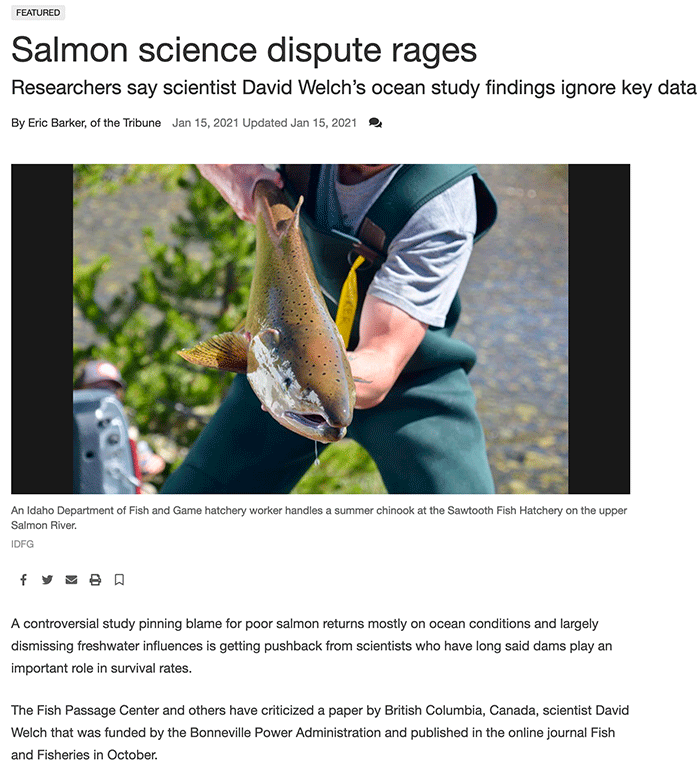
There’s been an a bit of a dustup in the world of salmon science of late, highlighted in this article in the Lewiston Tribune by Eric Barker. The core of the dispute is captured in his opening paragraphs –
A controversial study pinning blame for poor salmon returns mostly on ocean conditions and largely dismissing freshwater influences is getting pushback from scientists who have long said dams play an important role in survival rates.
The Fish Passage Center and others have criticized a paper by British Columbia, Canada, scientist David Welch that was funded by the Bonneville Power Administration and published in the online journal Fish and Fisheries in October.
Welch and his colleagues compared smolt-to-adult return rates from chinook runs in rivers up and down the west coast of North America and said survival has fallen dramatically in dammed and undammed rivers, and in rivers that are largely pristine and those that have been heavily altered…
The Welch article (A synthesis of the coast-wide decline in the survival of West coast Chinook Salmon (Oncorhynchus tshawytscha, Salmonidae) can be perused in full at the link, and the countering response from the Fish Passage Center team can be read in full here.
While not a salmon fisheries scientist, given my personal scientific training and career in the sciences, I suspect that West coast salmon reality probably incorporates elements from both opinions represented, and have offered the data today for a couple of reasons.
One, for those interested in the continuing PNW/West coast salmon (and steelhead) slow motion disaster we’re all watching, understanding the core issues at hand will be central to creating meaningful interventions and solutions. And two, despite what you might hear and see represented in today’s world, genuine science is by no means a static and monolithic process – genuine science involves disagreements which lead to alternative hypotheses/explanations of what’s observed, followed by different testing models to confirm these hypotheses. Anyone telling you “the science is already settled” for just about any issue is most often trying to sell you something else.
Caveat emptor.
Image via the linked article in the Lewiston Tribune.

